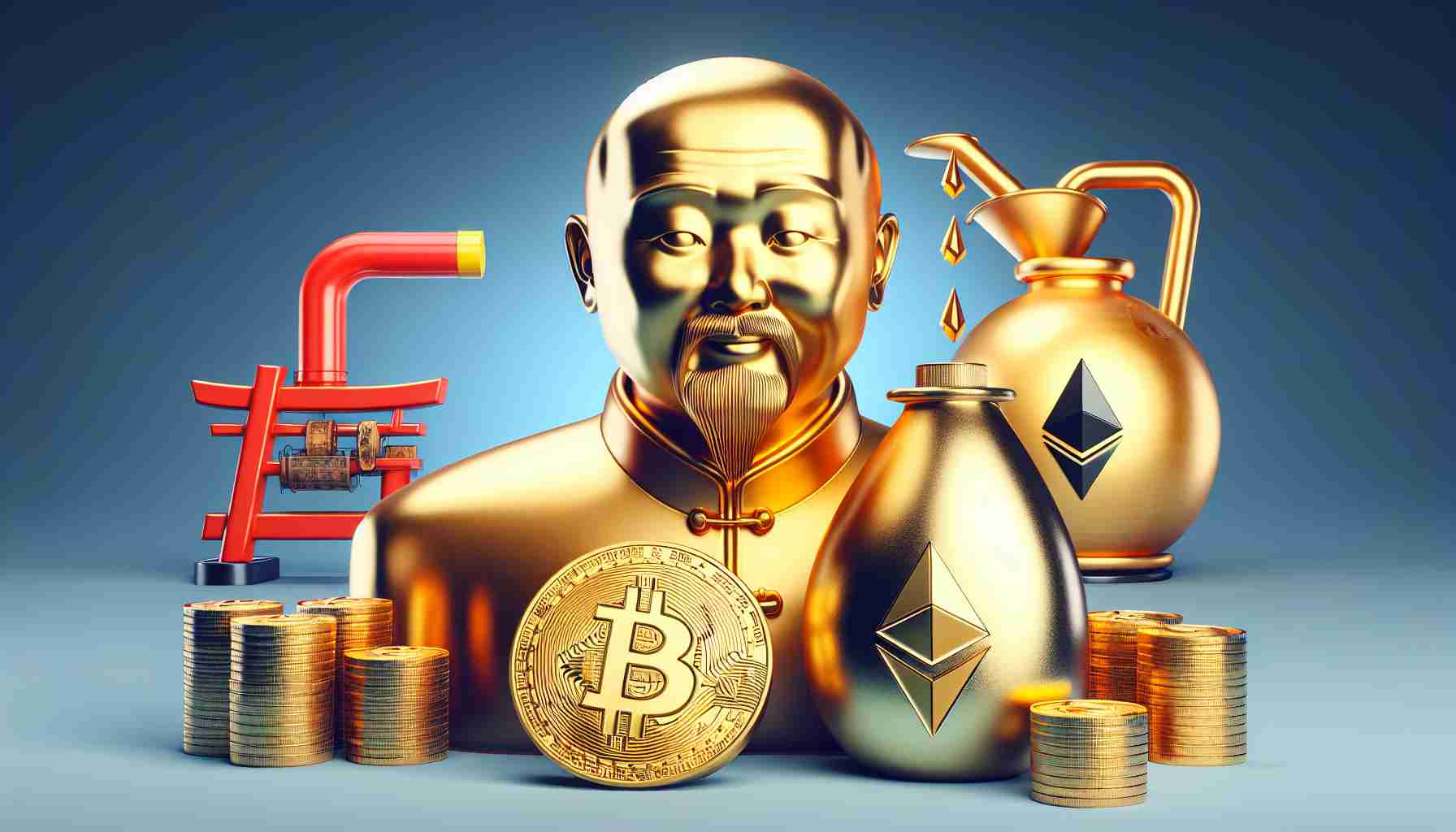Bitcoin and Ethereum Gain New Recognition from World’s Largest Bank
In a move that underscores the increasing recognition of cryptocurrency by mainstream financial entities, the Industrial and Commercial Bank of China (ICBC) has likened Bitcoin to a digital counterpart of gold and Ethereum to that of oil. This characterizes these cryptocurrencies as essential elements within the digital economy.
ICBC Acknowledges the Unique Aspects of Bitcoin and Ethereum
The ICBC has described Bitcoin as possessing a similar scarcity to gold due to its mathematically enforced constraints, yet without gold’s issues with divisibility, authenticity verification, and portability. This elevates Bitcoin from its origins as a potential medium of exchange to a substantial, dependable financial asset. Meanwhile, Ethereum has been dubbed “digital oil” for its foundational significance in the realm of Web3 applications and its ongoing technological advancements focused on security, scalability, and sustainability.
Transformative Attributes of Bitcoin and Ethereum Emphasized
Highlighting a shift in Bitcoin’s characteristics, the ICBC outlined how its monetary properties are fading in comparison to its asset attributes, which aligns Bitcoin more firmly with the role of a store of value. Furthermore, attention was drawn to Ethereum’s vital position in the digital economy, where it supports decentralized finances (DeFi) and non-fungible tokens (NFTs) through stablecoins — effectively linking the digital currency market with tangible economic activities.
Ethereum’s role as a crucial digital infrastructure is also notable. Its success in fostering a rich ecosystem of decentralized platforms is a testament to its robust virtual machine and dedicated programming language that enables complex smart contracts. These continuous improvements in Ethereum’s underlying technology affirm its place as an indispensable resource for future digital innovations.
The ICBC’s understanding of Bitcoin as digital gold and Ethereum as digital oil reflects their positioning within the broader digital economy. Bitcoin is widely considered an asset with qualities similar to precious metals like gold due to its scarcity and potential to hold value over time. Ethereum is seen as the fuel for the digital economy due to its platform’s ability to execute smart contracts and power various decentralized applications.
Key Questions and Answers:
– Why does ICBC liken Bitcoin to digital gold?
Bitcoin is likened to digital gold because of properties like scarcity, where the total supply of Bitcoin is capped at 21 million, making it finite like gold. Also, Bitcoin can serve as a store of value and is increasingly viewed as an investment asset.
– What makes Ethereum comparable to digital oil?
Ethereum is compared to digital oil due to its essential role in powering digital applications. The Ethereum network’s utility in enabling smart contracts and decentralized applications (dApps) makes it analogous to how oil is used as a fundamental resource in the physical economy.
– What are the key challenges or controversies?
One key challenge is the volatility of cryptocurrencies, which can make them risky as a store of value. There are also concerns about regulatory acceptance and the potential environmental impact of cryptocurrency mining.
– What are the advantages?
The advantages include the decentralization of financial systems, increased financial inclusion, the potential for high returns on investment, and the facilitation of innovations such as DeFi and NFTs.
– What are the drawbacks?
The disadvantages involve the high volatility of cryptocurrencies, regulatory uncertainty, potential for use in illicit activities, and the energy consumption associated with mining.
Related Links:
– For more information about ICBC, you can visit their website: ICBC
– For updates and further details on Bitcoin, you can go to: Bitcoin
– To learn about Ethereum and its technology, visit: Ethereum
The characterizations by ICBC offer a lens to view Bitcoin and Ethereum not just as cryptocurrencies but as fundamental assets in the digital domain. The increased recognition from a major bank is indicative of the growing influence and integration of cryptocurrencies in conventional finance. However, despite the potential advantages, the path forward is likely to involve scrutiny from regulators, hurdles in mass adoption, and an ongoing discourse on the environmental impact of digital currencies.



